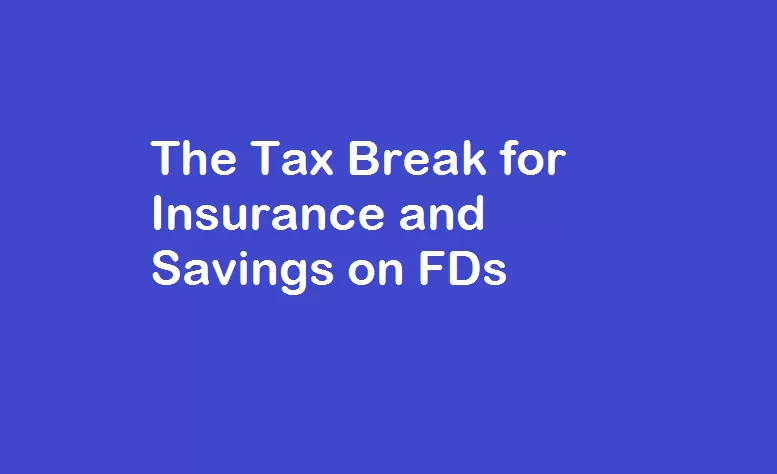One of the most significant advantages of investing in insurance and savings is the associated tax benefits. Tax breaks are one of the primary reasons people invest in these instruments. In India, for instance, investing in life insurance policies provides financial security and tax deductions under section 80C up to Rs.1.5 lakh per annum.
Similarly, saving through fixed deposits (FDs) can help you save money on taxes. As per the Income Tax Act, investments made in FDs with a lock-in period of five years or more qualify for a deduction under section 80C. If you invest Rs.1 lakh in an FD with a maturity period of five years or more, you can claim a tax deduction of up to Rs.1 lakh while filing your returns.
In conclusion, investing in insurance and savings is beneficial for achieving long-term financial goals and helps taxpayers save money on taxes through various deductions and exemptions offered by governments worldwide. Therefore, planning your finances wisely and taking advantage of these tax benefits is advisable to maximize your savings and ensure a secure future.
Tax breaks for insurance
Tax breaks for insurance have been a major incentive for people to invest in insurance policies. The government offers tax deductions on the premiums paid towards life insurance policies and health insurance plans under Section 80C and Section 80D of the Income Tax Act, respectively. These tax benefits have encouraged more individuals to purchase insurance policies, increasing their financial security.
Apart from tax breaks for insurance, another popular investment option with tax benefits is Fixed Deposits (FDs). Banks offer fixed deposit schemes that provide higher interest rates than savings accounts and offer a guaranteed rate of return. Additionally, investments made in FDs qualify for deductions under Section 80C of the Income Tax Act. This means an individual can claim up to Rs.1.5 lakh per annum as a deduction by investing in FDs.
Overall, these tax breaks for insurance and investments, such as FDs, help individuals save on taxes and encourage them to make sound financial decisions contributing to their long-term financial well-being.
Insurance premiums are the payments made by an individual to their insurance provider in exchange for coverage against specific risks. The good news is that these premiums can be tax-deductible, reducing your taxable income and saving you money on taxes. However, not all types of insurance premiums are eligible for tax deductions.
For instance, health insurance premiums paid by individuals who are self-employed or who do not have employer-sponsored health coverage may be deductible. Similarly, long-term care insurance premiums can qualify as a tax deduction if the policyholder meets certain requirements. On the other hand, life insurance and disability insurance premium payments are typically not deductible.
It’s essential to note that there are limitations to how much of your insurance premium payments you can deduct from your taxes. The amount you can claim as a deduction depends on factors like your age and income level. In addition, if you receive any reimbursements from your employer or elsewhere for specific expenses covered by your policy, those amounts must be subtracted from what you claim as a tax deduction. Overall, it’s always best to consult with a qualified tax professional before making any decisions about claiming deductions related to insurance premiums.
rajkotupdates.news : tax saving pf fd and insurance tax relief
Benefits of saving in FDs
One of the biggest advantages of saving in fixed deposits (FDs) is that they offer a higher interest rate than regular savings accounts. This means you can earn more money on your savings without taking too many risks. Moreover, FDs are a safe and secure investment option as they are issued by banks and regulated by the Reserve Bank of India (RBI).
Another benefit of investing in FDs is that they provide complete liquidity to investors. Unlike other investment options, such as mutual funds or stocks, FDs can be easily withdrawn without penalty charges. Additionally, no hidden fees are associated with opening an FD account, making it a cost-effective option for those looking to save money.
Regarding tax benefits, investing in FDs also offers tax breaks under Section 80C of the Income Tax Act. You can claim deductions up to Rs 1.5 lakh per annum on the amount invested in FDs for a minimum lock-in period of five years.
This makes it an attractive option for those looking to save money while reducing their taxable income. Overall, investing in fixed deposits has multiple benefits, such as higher returns, liquidity, and tax breaks, making them an ideal investment option for risk-averse investors seeking safety and security over high-risk investments like equities or mutual funds.
Read Also: Rajkotupdates.news games: Garena Free Fire & PUBG India
